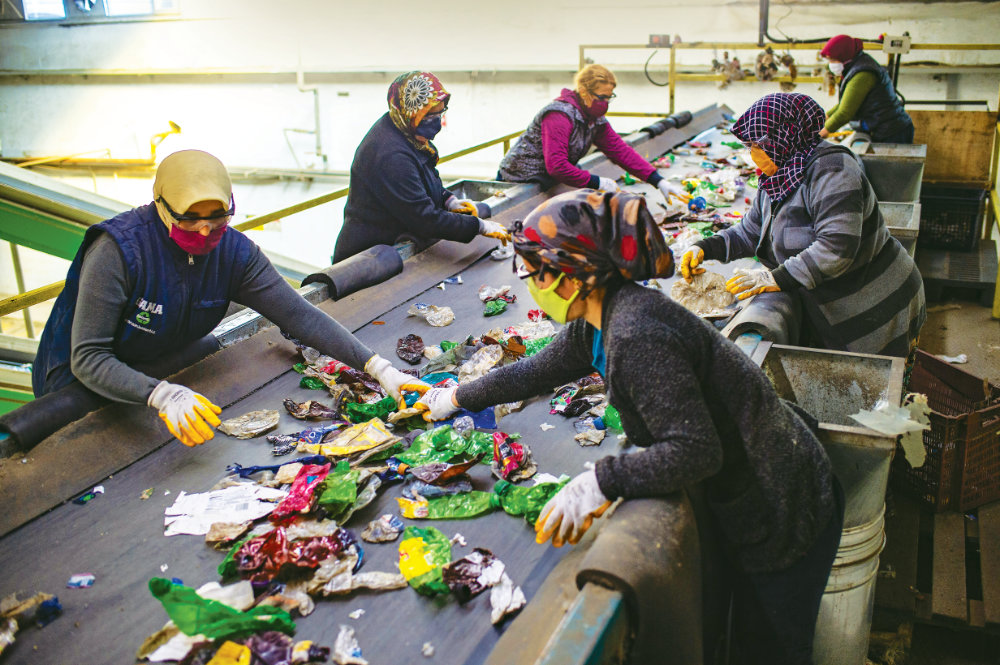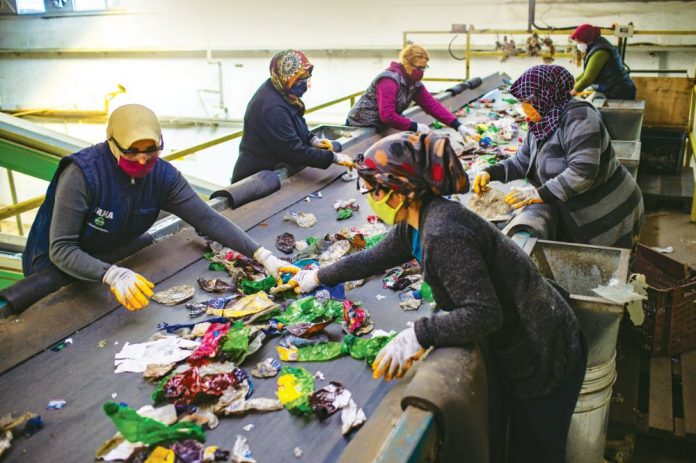ANKARA: The International Monetary Fund (IMF) has forecast that Turkish gross domestic product (GDP) will grow by about 6 percent this year, which was more optimistic than some recent analysts’ expectations.
Timothy Ash, a London-based senior emerging markets strategist at Bluebay Asset Management, said he expects real GDP growth of 2 to 3 percent for the Turkish economy.
“I expect this rate assuming Turkish Finance Minister Naci Agbal holds the higher for longer monetary policy mantra and that sees the current account closer to balance for the year,” he told Arab News.
Similarly, a recent Reuters poll that was announced on Jan. 18 predicted that Turkey’s economy will grow by 4 percent in 2021.
According to the IMF report, the pandemic left the Turkish economy “more susceptible to domestic and external risks.” It also suggests structural reforms that focus on “mitigating the risk of long-term adverse effects of the pandemic” along with “targeted measures to support the most vulnerable, encourage labor market flexibility and facilitate corporate debt relief.”
The report added: “The pandemic has inflicted a heavy human and economic toll on Turkey. The policy reaction, which focused on monetary and credit expansion, led to a strong rebound in growth after the initial shock, but at the same time exacerbated pre-existing vulnerabilities.”
Externally funded credit and demand stimulus, as well as declining reserves, high inflation and increasing dollarization of the economy are noted as “pre-existing vulnerabilities” by the IMF, which emphasized the steep fall in economic activities and employment in 2020 due to the pandemic.
Turkey’s annual inflation rate stands at around 14.6 percent, although some academics put the figure as high as around 36 percent.
A recent survey by Turkey’s Metropoll polling company revealed that 80 percent of respondents believe inflation is higher than the official figures.
Separately, Turkish President Recep Tayyip Erdogan recently warned about high grocery prices, saying that they will be forcibly reduced and banks should begin giving low interest loans.
However, economists think that such calls could be counterproductive in a market economy as it will risk distorting the rules of the game.
Cem Baslevent, a professor of economics at Istanbul Bilgi University, said the high interest rates derive from the high inflation and high borrowing costs of the banks.
“We have already seen in the past the devastating impacts of obliging the banks to give credits at low rates,” he told Arab News.
Concerning the high grocery prices, Baslevent urged more targeted structural measures to provide consumers with less expensive foodstuff through state-led initiatives like opening local markets with cheap prices.
Turkey’s annual consumer prices climbed to 15 percent, ranking the country second after Argentina among emerging markets and the highest among countries monitored by the Organisation for Economic Co-operation and Development.
The IMF report came a day before Turkey’s largest business groups, including the Turkish Industry and Business Association and the Union of the Chambers and Commodity Exchanges of Turkey (TOBB), released a joint statement urging the government to fight against inflation.
“Every economic recovery without price stability would be short of duration and narrow the investment horizons of our business people,” said the declaration. There are also signs that the Turkish business community is uneasy with the high interest rates as Turkish corporate loan rates recently climbed to over 20 percent.
In a written statement on Jan. 14, Rifat Hisarciklioglu, the head of TOBB, complained that the high interest rates of the banks have become a serious barrier for investment.

At FII, investment experts call for “fair” ratings on social valuesTimothy Collins at FII: ‘Survivors of this mess will provide great opportunities’

